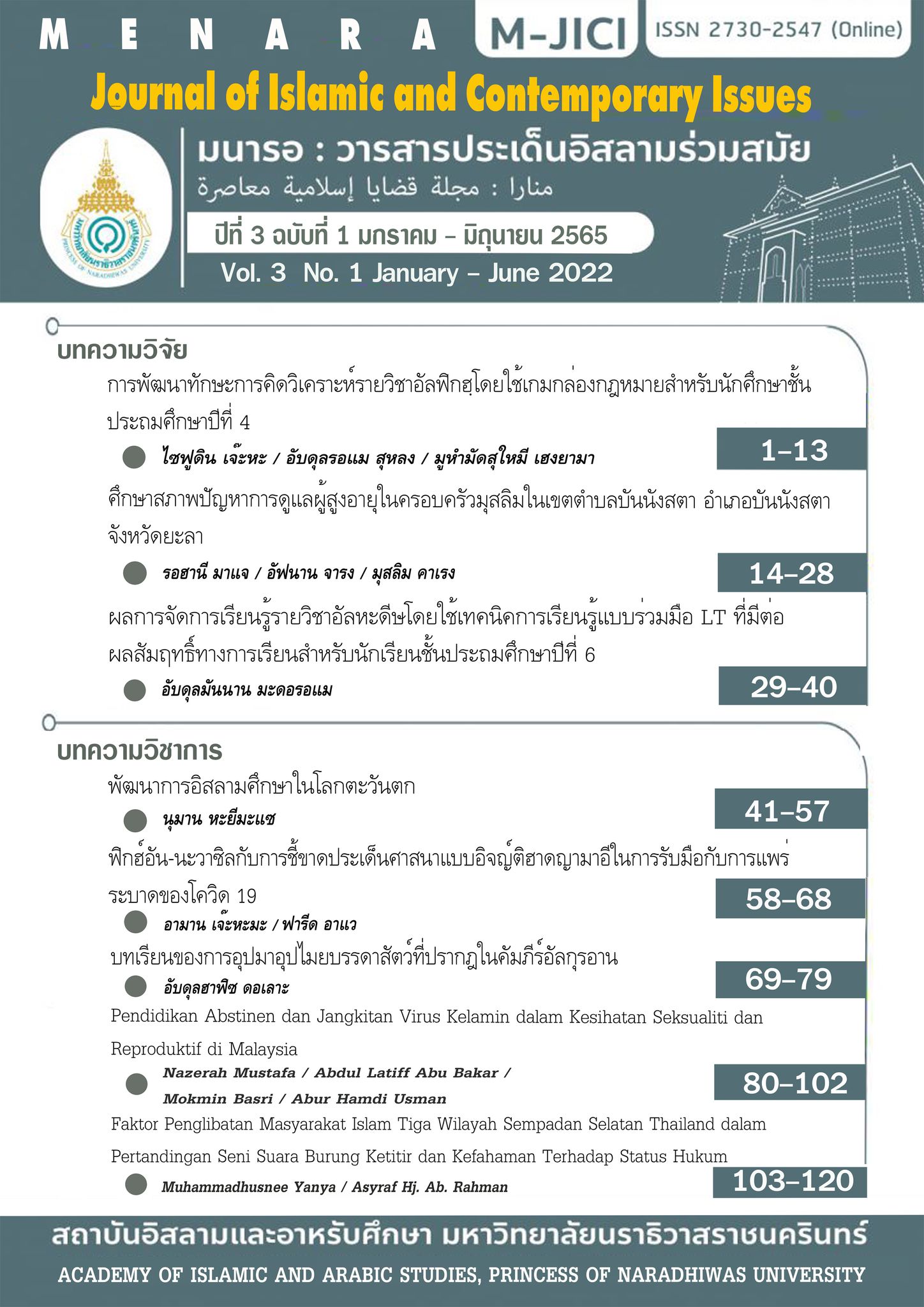Fiqh al-Nawazil with the Role of Ijtihad Jamaa‘i in Dealing with Covid Pendemic 19
Keywords:
al-Nawazil, Ijtihad Jamaa‘i, Pandemic Covid 19, Maqasid ShariahAbstract
This study aims to identify the concept of Fiqh al-Nawazil and the extent of the role of Ijtihad Jamaa'i in dealing with Covid 19 as well as the relationship between Fiqh al-Nawasil and the supreme spirit of Islam (Maqazid Shariah). This study uses a qualitative method with content analysis research method on Fiqh al-Nawazil and the role of Ijtihad Jamaa'i in dealing with Covid 19. Data are extracted from al-Quran, al-Hadith, books of past and contemporary scholars. Data is then analyzed according to document analysis and content analysis. The results of the study found that the concept of Fiqh al-Nawazil and the role of Ijtihad Jamaa'i in dealing with urgent situations, especially Covid 19 is very necessary and the need for a fatwa process for rules appropriate to the urgent situation is an obligation for every ulama and academics. This is because al-Nawazil’s problem has special characteristics that are different from the problems that occur under normal circumstances. One of the most important features is that the door of khilaaf is closed to deal with al-Nawazil's problem. Scholars and academics as well as the general public need to realize that taking care of life in the time of the critics is more important than taking care of religious teachings. In addition, the task of issuing fatwas in the matter of al-Nawazil must also be done in congregation, not individually. This study also aims to create an organization that combines scholars and academics in various related fields to produce and follow the latest effects and developments of Covid 19 and explain to the general public using more effective means.
References
Abadi. F. (1880). Al-Kamus al-Muhit. Cairo: al-Haiah al-Ammah lil Kitab.
Al-Faiyumi. (1987). Al-Misbah al-Munir. Beirut: Matabah lubnan.
Al-Khatib Al-Baghdadi. (1974). Al-Faqih wal Mutafaqqih. Cairo: Dar Ihya’ Al-sunnah al-Muhammadiyah.
Allam. S. (2020). Fatawa al-Nawazil Covid 19. Cairo: Idarah al-Abhas al-Syariyah.
Al-Nawawi. (1972). Al-Majmuk. Juddah: Maktabah al-Irsyad.
Al-Qardhowi. Y. (1996). Al-Ijtihad fi al-Syariah al-Islamiyah. Kuwait: Dar al-Qalam.
Al-Qurtubi. (2003). Jamik bayan al-Ilm wa Fadlih. Cairo: Dar Ibn Hazam & Dar al-Rayyan.
Al-Zamakhsyari (1998). Asas al-Balaghah. Beirut: Dar al-Kutub al-Ilmiyah.
Asy-syarafi. A. (1996). Al-Ijtihad al-Jamai’I fi al-Tasyrik al-Islami. Qatar: Wizarah al-Auqaf wa al-Syuun al-Islamiyah.
Dar al-Ifta’ Misriyyah. (2011). Dhowabit al-Ikhtiyar al-Fiqhi inda al-Nawazil. Cairo: Idarah al-Abhas al-Syariyah.
Ibn Asyur. T. (2009). Maqasid al-Syariah al-Islamiah. Cairo: Dar al-Salam.
Ibn Hajar. (2007). Al-Talkhis al-Habir. Cairo: Adwa’ al-Salaf.
Ibn Hamdan. (1982). Sifat al-Fatwa wa al-Mustafti. Beirut: Al-Maktab al-Ismali.
Ibn Manzur. (1879). Lisan al-Arab. Beirut: Dar shodir.
Jumaat. A. (2010). Tartib al-Maqasid al-Syariah. Kairo: al-Majlis al-Akla lil al-Syuun al-Islamiyah.
Syakban. M. I. (2011). Al-Ijtihad al-Jamai’i wa Ahamiyatuhu fi Muwajahah Musykilatil asr wa dauru al-Majamik al-Fiqhiyah fi Tatbiqihi. Cairo: Dar al-Salam.
Downloads
Published
How to Cite
Issue
Section
License
Copyright (c) 2022 MENARA : Journal of Islamic and Contemporary Issues

This work is licensed under a Creative Commons Attribution-NonCommercial-NoDerivatives 4.0 International License.



